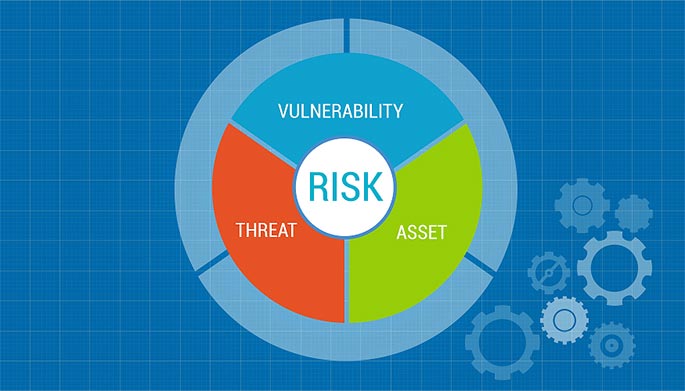During the 2020 Coronavirus lockdown we have all gone to great lengths to avoid this highly contagious virus and have experienced varying levels of state enforced social distancing.
With the phased lifting of the lockdown, and the resumption of social contact we are now increasingly exposed to another threat, another form of contagion.
This renewed threat is known as emotional contagion, which is the effect and impact of other people’s emotions on our own dominant emotional state. This matters, as many of our life experiences are created or attracted by our dominant emotional state.
Because the means of transmission is via renewed and increasing social contact I reframe this as social contagion.
The Tidal Swirl Of Other People’s Emotional Turbulence
In her highly regarded book “An Abbreviated Life – A Memoir” former Sunday Times journalist Ariel Leve paints a painful, poignant portrait of our vulnerability to the tidal swirl of other people’s emotional turbulence.
This is especially true when we are children. Leve recounts how as a child she desperately attempted to ride the emotional waves emanating from her mother, whom she describes as volatile and narcissistic.
“I had no choice but to exist in the sea that she swam in. It was a fragile ecosystem where the temperature changed without warning. My natural shape was dissolved and I became shapeless.”
Leve explains:
“When somebody’s mood can shift quickly, you’re always on your toes and you’re always on guard, which means you can never really relax. And as a consequence, as an adult, I find that I absorb the mood and energy of other people very intensely, so I need a lot of time alone to decompress.”
Her experience resonates with me.
Is this OK for Dad?
I recall as a child accompanying my father on his rounds as a grocery delivery man. Each time we visited a new location, I would immediately tune in to my highly sensitised “vibe antennae” and take the emotional and psychic temperature of the site to see if it felt “OK for Dad”, was it somewhere that he would like and that would make him happy.
At the time I didn’t know why I did this. But it was a habitual thing and developed into a form of hyper-vigilance where I was constantly taking the emotional and psychic temperature of new situations and places.
Church bells and overwhelming feelings of misery
It was a beautiful sunny afternoon and I was sitting on a bench in the churchyard of an old English parish church. The sun was shining, birds were singing, butterflies were fluttering, my mood was mellow and I basked in the warmth of the late summer sun.
The church bells started ringing… and within seconds my mood changed and I was overwhelmed with feelings of sadness, melancholy and misery.
Reflecting on that experience in early adulthood I realised that the sound of church bells always had that effect on me since my childhood.
Following some forensic trawling through childhood memories supported by corroboration from my elderly mother I came to understand that as very small child my family had lived next to a church in a small country village. My mother told me that she was very unhappy at that time and frequently overwhelmed with feelings of misery and despair.
Her powerful feelings had infected me and become associated with the sound of church bells ringing.
How a leader’s emotions infect an organisation
In 2001 Daniel Goleman introduced the concept of what he termed “Primal leadership” and outlined research that he and his team conducted in a study of 3,871 executives and their direct reports and it showed that the leader’s style determines about 70% of the emotional climate which in turns drives 20-30% of business performance.
In an interview (with Stephen Bernhut in “Leaders Edge”, Ivey Business Journal May/June 2002) Daniel Goleman said:
“Emotions are contagious, and they are most contagious from the top down, from leader to followers.”
“When Likes Aren’t Enough” – how social media negatively affects mental health
In “When Likes Aren’t Enough: A Crash Course in the Science of Happiness” Professor Tim Bono tackles the ever-popular subject of happiness and well-being, but reframes it for a younger reader struggling with Instagram envy.
The Nursing Times have recently published a study “How use of social media and social comparison affect mental health”
The Centre For Mental Health recently published: “How use of social media and social comparison affect mental health”
In June 2014 PNAS published the results of a massive study on Facebook users: “Experimental evidence of massive-scale emotional contagion through social networks”
Clearly there are so many ways that we are affected by other people’s emotions. We are emotional and thus energetic beings, and we live in an energetic universe that responds to our dominant energetic state in the experiences that we create and attract.
Two important questions arise from this:
(1) How are we so susceptible to other peoples’ emotions?
(2) What steps can we take to protect others and ourselves?
How Are We So Susceptible To Other Peoples’ Emotions?
Elaine Hatfield Professor of Psychology (University of Hawaii), and co-author of a pioneering academic book “Emotional Contagion” defines “primitive” emotional contagion as the:
“… tendency to automatically mimic and synchronize facial expressions, vocalizations, postures, and movements with those of another person and, consequently, to converge emotionally… “
The contagion occurs in three stages:
- Mimicry
- Feedback
- Contagion.
Social contagion is a hardwired reflex that is a basic building block of human interaction. It has an evolutionary purpose in that is helps us coordinate and synchronize with others, empathize with them, and read their minds. All of these are critical survival skills.
What Steps Can We Take To Protect Ourselves & Others?
Here are 4 key steps:
(1) Quarantine yourself until you have figured how not to contaminate others with your bad mood. So, bless them with your absence!
(2) Inoculate yourself with mindfulness practice
(3) Drop the story and find the feeling by meditating with emotions
(4) Share compassion – and become a bodhisattva-warrior – with a vow to care of one another
I leave you with this sobering thought from Jack Canfield:
“You are the average of the 5 people you spend the most time with.”
Read More: Social Contagion






![Erratum for “An inverse theorem for the Gowers U^s+1[N]-norm”](https://azmath.info/wp-content/uploads/2024/07/2211-erratum-for-an-inverse-theorem-for-the-gowers-us1n-norm-150x150.jpg)

